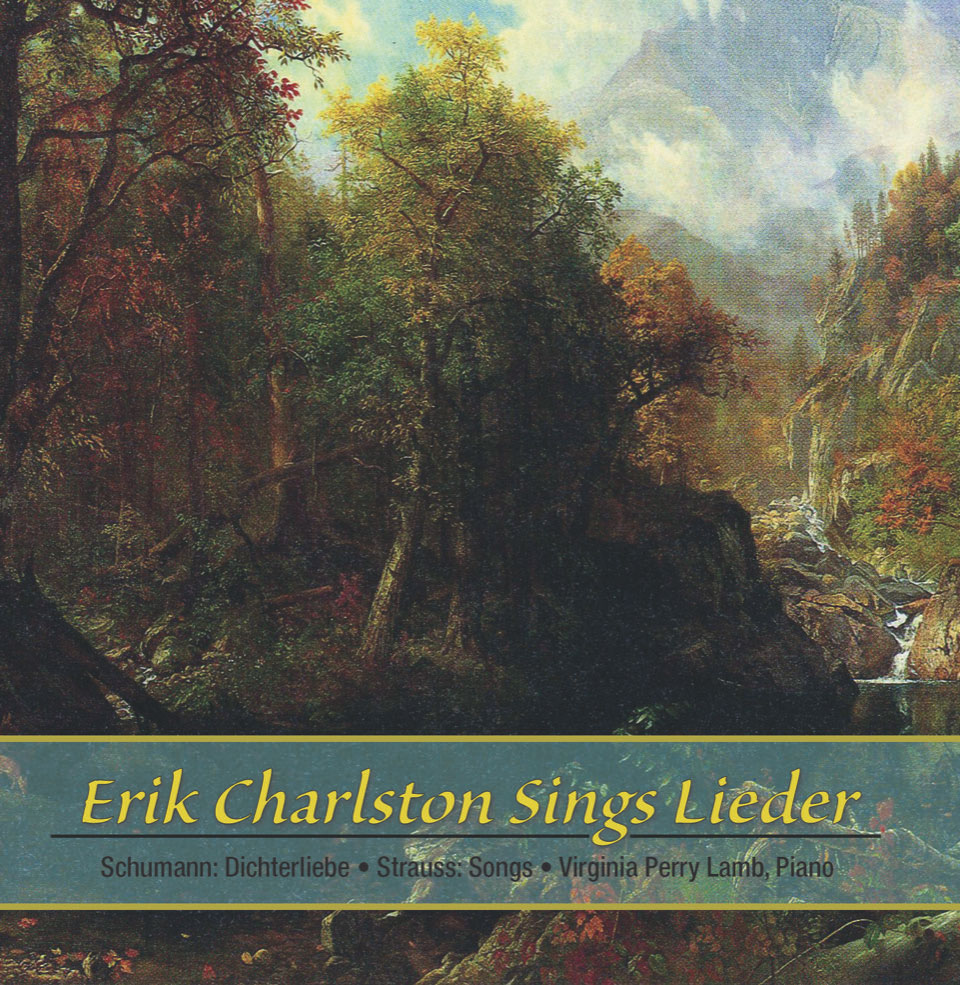There is no shortage of recordings of Schumann’s Dichterliebe, but this may be the only one by a well-regarded percussionist for whom singing is a sideline. Erik Charlston’s bio lists all manner of impressive instrumental credits including Chamber Music Society of Lincoln Center, stints with Sting and Elton John, and numerous Broadway orchestras, but no professional singing credits.
What a delightful surprise, then, to discover that Charlston is a fine, sensitive singer, with a pleasingly open, direct baritone, free of the distracting mannerisms that can sometimes hinder lieder performances. His Dichterliebe is quite persuasive, and he approaches each song with a fresh, differentiated point of view. He doesn’t take a single note or word for granted; every phrase is well thought out and effectively communicated. Charlston knows his vocal limits; he wisely avoids the high note in “Ich grolle nicht” and doesn’t force more sound than he’s capable of in “Im Rhein, im heiligen Strome.” His diction is precise and clear, and he allows the sense of the words to modulate his phrasing. Charlston is particularly attuned to shifts in harmony, inflecting moments like “Doch wenn du sprichst: ich liebe dich” with overtones of meaning. He’s vibrant and present in lively songs like “Ein Jüngling liebt ein Mädchen” and “Aus alten Märchen,” and earnestly hopeful in “Aus meinen Tränen spriessen” and “Ich will meine Seele tauchen.” “All mein Gedanken” is the strongest entry among four Strauss songs, but here Charlston’s voice proves a little light. Still, his musical intelligence carries them.
Pianist Virginia Perry Lamb supports Charlston well, but doesn’t manage the magic of the postlude to “Am leuchtenden Sommermorgen” or the explosive effusion of “Cäcilie.”
– JOANNE SYDNEY LESSNER


